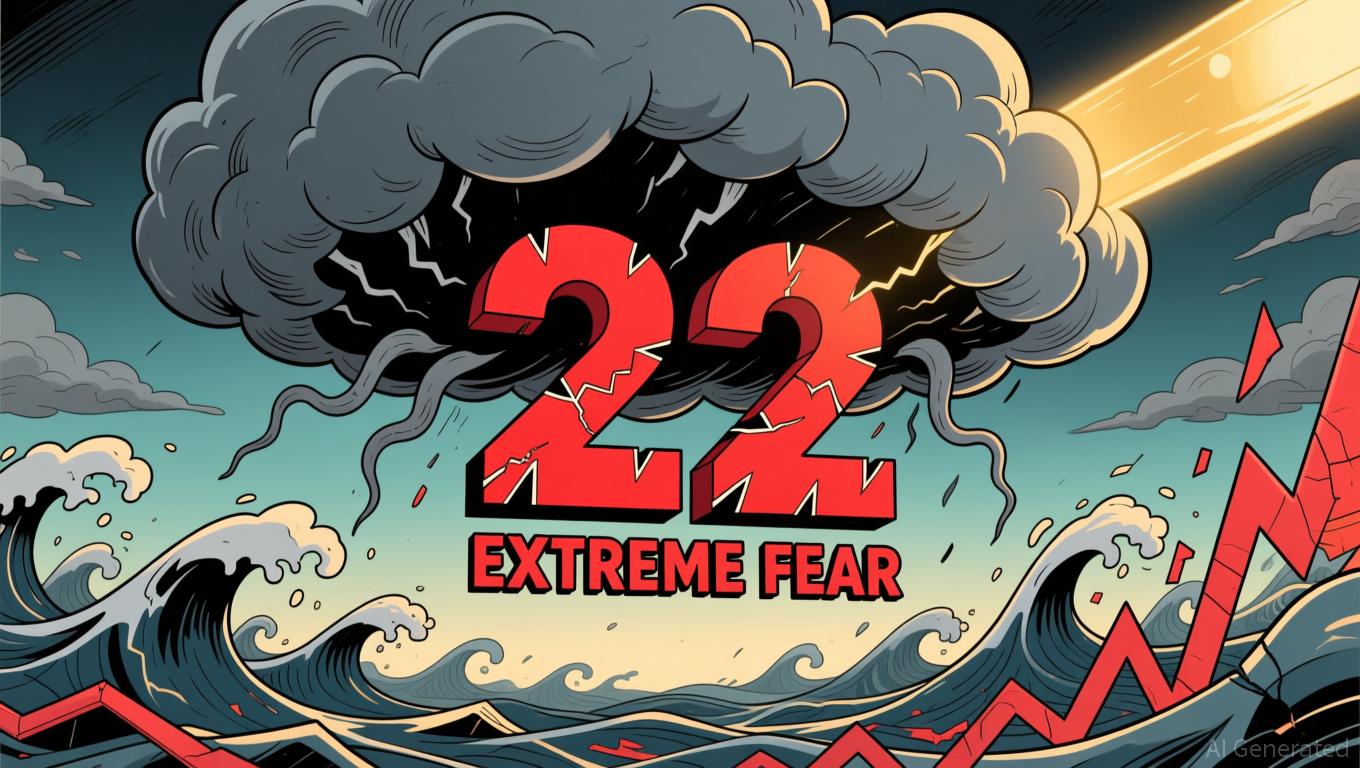SEC Considers Blockchain Stock Advancements as Concerns Over Conventional Market Stability Persist
- SEC plans to discuss tokenized stock regulations with major firms like Coinbase and BlackRock , aiming to modernize securities rules for blockchain-based finance. - Proposed "innovation exemption" seeks to fast-track crypto products but risks destabilizing traditional markets by creating valuation gaps and eroding investor protections. - WFE warns tokenized shares could disrupt market structure, while Nasdaq proposes unified order books with shared CUSIP identifiers to align with existing systems. - Regu
SEC to Review Regulations for Tokenized Stocks
The U.S. Securities and Exchange Commission (SEC) is set to examine the regulatory landscape for tokenized stocks, with leading industry names such as Coinbase, BlackRock, Galaxy, and Robinhood slated to join the upcoming discussions. As the SEC intensifies its efforts to update securities regulations, it is considering special exemptions that could pave the way for broader adoption of blockchain-powered financial products. This initiative is part of a larger strategy to strengthen the U.S. position in the digital finance sector. However, these moves have raised apprehensions among traditional financial institutions, who worry about possible disruptions to established market frameworks.
Debate Over the "Innovation Exemption"
Central to the ongoing debate is the SEC’s proposed "innovation exemption," a temporary relief mechanism advocated by Chairman Paul Atkins. This proposal would enable crypto companies to introduce tokenized offerings while the agency works on comprehensive regulations. Tokenized stocks, which are digital representations of conventional shares on a blockchain, offer advantages like round-the-clock trading, quicker settlements, and the ability to own fractional shares. Despite these benefits, concerns remain about investor protection, especially since some tokenized products mimic the financial performance of stocks without conferring actual ownership or voting rights.

Industry Concerns and International Lessons
Major stock exchanges and the World Federation of Exchanges (WFE) have voiced significant concerns regarding the risks of expedited regulatory exemptions. In a letter sent to the SEC’s Crypto Task Force on November 21, the WFE cautioned that broad exemptions could disrupt market integrity, hinder accurate price discovery, and create inconsistencies between tokenized and traditional equities. International experiences, where synthetic stock tokens have traded at notably different prices, underscore the potential for investor misunderstanding and regulatory loopholes. The WFE also highlighted that tokenized equities might weaken existing clearinghouse systems and compromise shareholder rights, including dividend entitlements and voting privileges.
Upcoming SEC Meeting and Technical Considerations
The SEC is scheduled to meet with Nasdaq, BlackRock, Citadel Securities, and other major firms on December 4 to discuss how tokenized stocks could fit within current regulatory frameworks. Nasdaq has suggested merging tokenized and traditional shares into a unified order book, ensuring both share identical CUSIP codes and economic rights. This model would avoid the use of unregistered "wrapper tokens," which the SEC has previously criticized for their lack of transparency. The meeting will also explore technical hurdles such as custody solutions, interoperability protocols, and mechanisms for continuous trading.
Balancing Innovation and Market Stability
Regulators are striving to foster innovation while safeguarding the financial system. While Chairman Atkins supports a more flexible approach, organizations like the WFE advocate for limited, temporary exemptions accompanied by strict oversight. Proposed safeguards include anti-money laundering (AML) measures, requirements for asset segregation, and pilot programs to gather market data before any large-scale rollout. The decisions made in these discussions could transform how investors access financial markets, but achieving a balance between the efficiency of blockchain technology and the reliability of traditional systems remains a key challenge, as noted by industry experts.
Disclaimer: The content of this article solely reflects the author's opinion and does not represent the platform in any capacity. This article is not intended to serve as a reference for making investment decisions.
You may also like
Switzerland Postpones Crypto Tax Data Exchange to Meet Technological and International Requirements
- Switzerland delays crypto tax data sharing until 2027, aligning with global regulatory reevaluations amid evolving tech and market dynamics. - SGS acquires Australia's Information Quality to boost digital revenue, reflecting Swiss firms' expansion into tech-driven compliance solutions. - Canada's Alberta oil sands policy shift highlights governments prioritizing economic growth over strict climate regulations, mirroring Switzerland's approach. - BridgeBio's precision medicine and Aires' EMF solutions dem

Switzerland's Focus on Privacy Conflicts with International Efforts for Crypto Taxation
- Switzerland delays crypto tax data sharing with international partners until 2027, contrasting with global regulatory efforts to close offshore loopholes. - The U.S. advances implementation of the OECD's CARF framework, aiming to automate reporting on foreign crypto accounts by 2029. - CARF requires foreign exchanges to report U.S. account details, mirroring traditional tax standards and targeting crypto tax evasion. - Switzerland's privacy-focused stance highlights tensions between financial confidentia

Zcash News Update: Reliance Shifts Entirely to Zcash, Citing Privacy and Regulatory Alignment
- Reliance Global Group, a Nasdaq-listed fintech firm, shifted its entire crypto portfolio to Zcash (ZEC), divesting Bitcoin , Ethereum , and other major coins. - The strategic pivot, announced November 25, prioritizes Zcash's privacy-focused zk-SNARKs technology for institutional compliance and selective data disclosure. - Zcash's 1,200% 90-day price surge and Grayscale's ETF filing highlight growing institutional interest in privacy-centric assets. - The move reflects broader crypto industry trends towar
Bitcoin News Update: Bitcoin Fear Index Drops to 22 While Investors Look for Signs of Market Rebound
- Bitcoin Fear & Greed Index rose to 22 from 20, indicating slight easing of extreme fear but persistent bearish sentiment. - Bitcoin stabilized near $87,000 after hitting $80,553, yet remains below key resistance levels amid $3.5B ETF outflows. - Structural factors like leverage and liquidations drive selloffs, with ETF redemptions correlating to 3.4% price drops per $1B outflow. - Analysts note oversold technical indicators and waning retail capitulation as potential inflection points for near-term rebou
